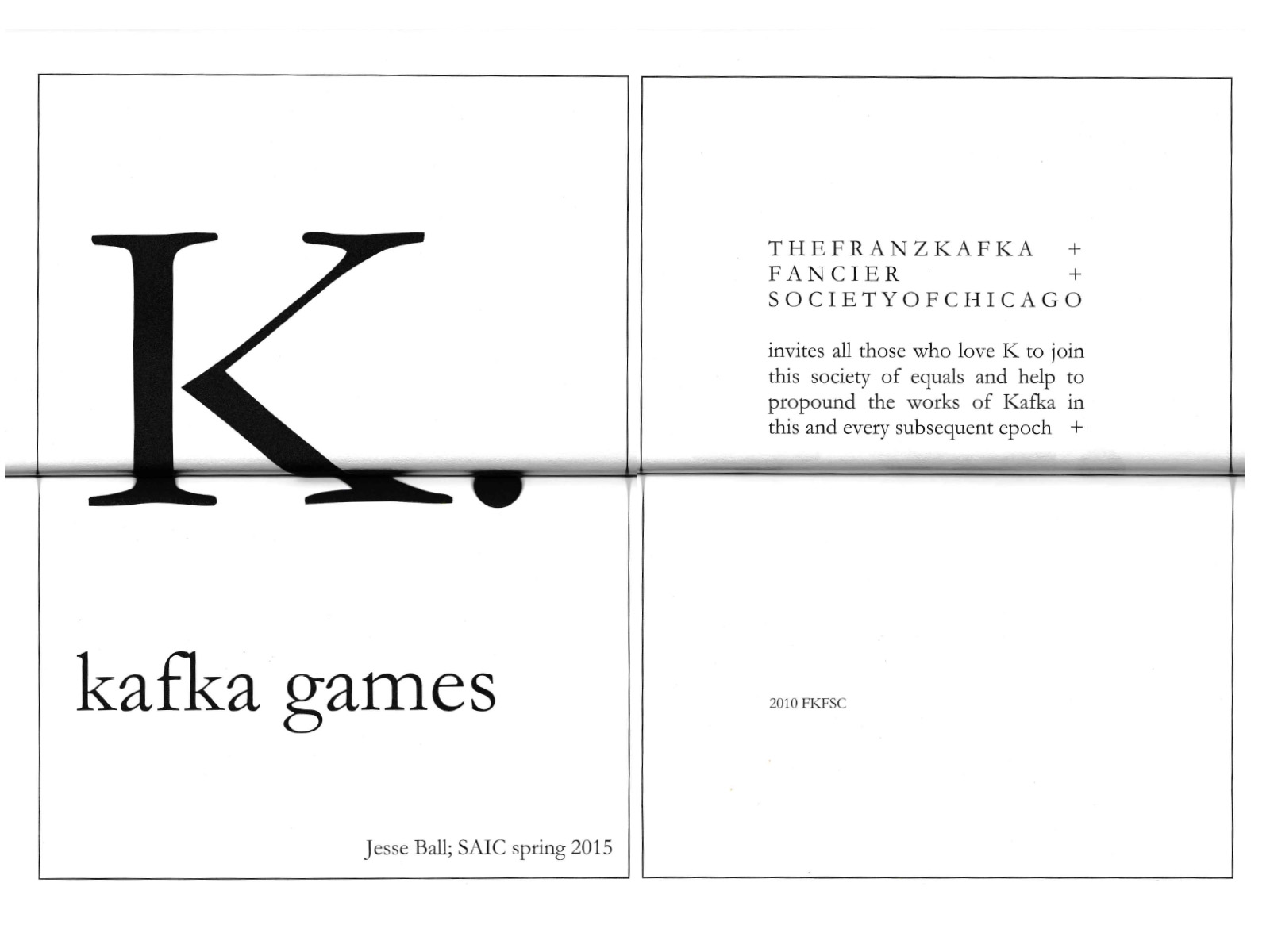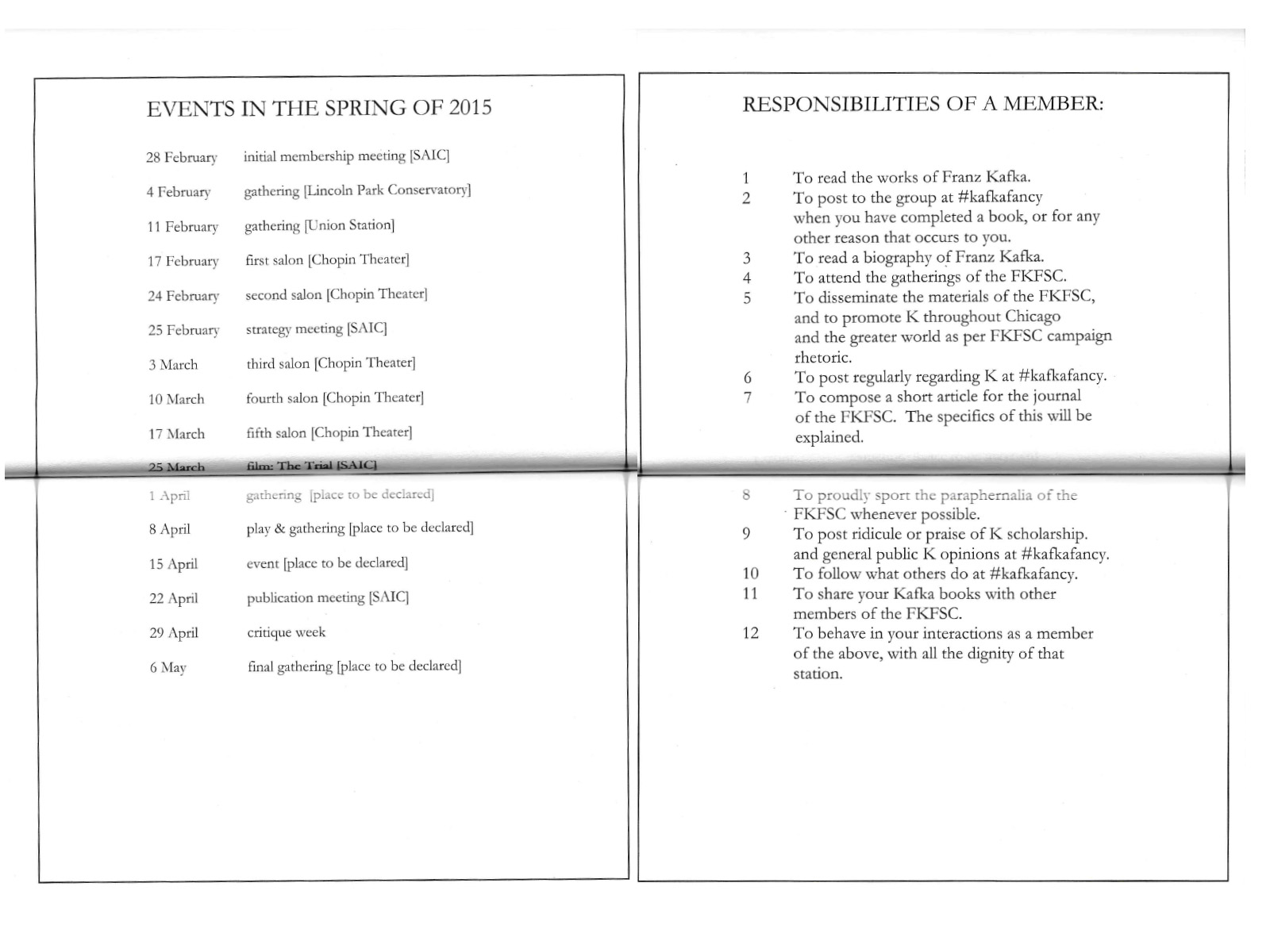The Utopian Syllabus
I recently had the pleasure of introducing a friend to Jesse Ball’s Notes on My Dunce Cap, and it spurred me to come to more formal terms with this special book. Part practical guide to thinking about teaching and part case study in course design, the book answers a nagging question for teachers and students alike:
What is the function of the syllabus?
Ball, a prolific fabulist, uses the language of fiction to deepen the connection between syllabus and student experience. His approach stands out as a creative tonic for documents that have become increasingly rigid and bureaucratic.
The State of the Syllabus: Information ÷ Attention
I was trying to cover every contingency. The core problem, I realized, was that I was thinking of the syllabus as a contract. Indeed, that seems to be the default metaphor of syllabus design, and multiple pages amplify the effect.
— Thomas Deans, Yes, Your Syllabus is Way Too Long
Our attempts at making these dense contracts for knowledge transfer are born from an uncertainty about what the syllabus is and what it should be. This is coupled with an ever-growing concern for the ways in which they might be used against us.
Thomas Deans addresses this tendency in the above passage from his article "Yes, Your Syllabus is Way Too Long". However, upon surveying his students Deans found that most stopped reading the syllabus around page two. The remedy for the problem of too many pages is simple. He sets a hard two-page limit for the syllabus (single sheet, front and back) with any omitted information broken out into supplementary documents. But what about the other problem, the problem of the default metaphor?
By rearranging the content — creating separate policy and class schedule documents, etc.— Deans’ focus on an immediate problem of attention comes at the expense of scrutinizing this metaphor. Rearranging the content is actually the opposite of scrutinizing it: like moving the contents of your junk drawer into the attic. In the comments section, diligent readers criticize this underlying caveat of Deans' “short syllabus” approach.
Still, he touches on the idea of metaphor throughout.
Some argue against framing the syllabus as a contract, such as the writer and educator John Warner, who prefers "a mix of plan, promise, and manifesto," which I quite like. Others have proposed different governing metaphors for syllabus design: It’s a first impression of you and your course, it’s a map/journey, it’s an instruction manual. Whatever approach you settle on, a two-page limit forces a distillation of essentials.
Evaluating all these supplemental metaphors seems beyond Deans’ scope, though the work he’s done outlining them is helpful. But perhaps it is the type of hedging couched as “whatever approach you settle on” that keeps us spinning our wheels. My syllabi certainly read as if they’re just going through the motions. Maybe yours do too.
Anatomy of a Syllabus: A Lesson in Vestigial Features
...the supplement supplements. It adds only to replace. It intervenes or insinuates itself in-the-place-of; if it fills, it is as one fills a void
— Derrida, Of grammatology
Before looking to Ball’s Notes On My Dunce Cap for answers, I wanted to see my own syllabus through Deans’ eyes. I picked one I had made for a music appreciation class because it includes many of the offending elements he refers to in his article: university-required verbiage, student learning outcomes, policies, schedules, assignment instructions, etc.
Here each section is shown as a percentage of the document’s total word count of 2,380:
Assignment descriptions: 47% (1,110)
Required SLO assignment description: 15% (356)
University policy: 16.5% (392)
Expectations: 11% (253)
Timeline: 9% (220)
Course materials, contact info: 4% (104)
Class policy: 4% (99)
Grading: 2.5% (59)
Purpose statement: 2% (46)
Student learning objective: 2% (45)
Structure: 2% (44)
My syllabus is a tight 6 pages. University policy alone occupies a full page, and all university-required language adds up to over a third of the content. I could keep to one page by only including resources, structure, grading, and timeline.
Of course, Deans is making a point about enforcing a hierarchy. But in this case it doesn’t take shape any differently than the one I’ve already installed in the comprehensive document. My first two pages are actually built this way, and could be a standalone syllabus. They already include resources, structure, grading, and timeline. Breaking everything into this or that pdf seems moot— especially when we start talking about navigation and hierarchy in terms of online learning management systems. But our primary goal is to have our syllabi read, and none of this forces me to answer for the quality of communication here. If addressed, this could in itself solve the problem of attention.
What is actually most apparent from my syllabus breakdown is how little correspondence there is between the importance of the material and the space it takes up on a page. My contact information and office hours account for barely 1% of the document and are likely the most important pieces of content on it. All other information is re-presented in sequence throughout the class.
So let us get back to our burning question: is there a better metaphor we can use to guide syllabus design?
Enter JESSE BALL
A syllabus should frame the kind of encounters that you would like to have happen in the class. The language of the syllabus should be the language that you would like to hear spoken in the class.
— Jesse Ball, Notes On My Dunce Cap
Sample syllabi make up almost two thirds of Ball’s Notes On My Dunce Cap. His classes cover topics like Grimm’s Fairy Tales, lucid dreaming, Kafka, Guy Debord’s practice of the dérive, etc. Often they occupy novel venues and require unique forms of student participation.
Perhaps my favorite example in Notes is from a class called “kafka games.” Each session is run as a meeting of the Franz Kafka Fancier Society of Chicago (the FKFSC). There is a schedule of meetings, a members’ code of conduct, bulletins, bylaws, a call for submissions for the journal published by the FKFSC, etc.
The game is of course is to pretend such a thing into existing: to use the class to form the society that forms the class.
The syllabus is 11 pages long. But within those pages, Ball manifests Kafka’s minor literature as a classroom enclave.
A minor literature doesn't come from a minor language; it is rather that which a minority constructs within a major language…The three characteristics of minor literature are the deterritorialization of language, the connection of the individual to a political immediacy, and the collective assemblage of enunciation.
— Deleuze and Guattari, Kafka: Toward a minor literature
The formal language (deterritorialization), the bureaucracy (political immediacy and collective assemblage), is necessary to the structure of learning. Ball uses the classroom to embody a complex of Kafka’s literary themes: the individual’s relationship to social and domestic structures, isolation and absurdity, etc. etc.
From the title page down to each bulleted sentence, Ball’s syllabus is designed to impart care for the information it contains. Every instruction is written to be read.
The Dark Utopia of the Classroom
The classroom can be a very disorienting place. We take for granted that the structures we impose and the languages we use are immediately apparent and understood by students. The classroom is coded to project objectivity, austerity, and prestige. The underlying question of Notes On My Dunce Cap is this: why not acknowledge and embrace the essential disorientation of the classroom? Perhaps we can even use it to our advantage.
Conversations about syllabus design can allow these deeper issues to surface. Deans advocates for hierarchy, which is how I approached my syllabus as well. But Ball defines the syllabus in terms of how it reflects the culture of the classroom. His focus is not on hierarchy but on narrativizing student experience. This has nothing to do with the types of assignments to be handed in or a schedule of due dates. That is to say, the syllabus can touch on those things but always in the context of the actions and words we use to get there.
Ball’s classroom instructions read like stage directions. He treats the classroom itself as a stage and allows students to perform— to act in the role of the student they are to become. There is tremendous value in this.
Fiction is a place where nothing happens at random, where each character's motivation, dialogue, action— just their presence alone— contributes something essential.
Excerpt from "The Asking", Notes on My Dunce Cap, 113.
Ball shows that if we give proper form to what is still a potpourri of pedantic detail, then procedural information can engender transformational experiences. When focused on learning behaviors and not learning products, our syllabi read more like a stage plays than contracts.
Alternatively, if we do not set down such basic things as the encounters that will happen and the language to be spoken, then we leave students to guess at these things, and for both sides to be disappointed.
The cost of not addressing the mindset that views a syllabus as a contract is that learning will remain a negotiation, with student and teacher at opposite sides of the table. Reducing learning to litigation— a transfer of ownership for knowledge— inspires narrow definitions of this knowledge, which can never properly convey the weight of responsibility for it.
Ball approaches the problem of the default metaphor head on. He faces the same scenario— that students don't pay attention to our syllabi—but his conclusion is not to make the syllabus arbitrarily shorter. Instead he says, why not simply write a syllabus worth reading?
One should when reading a syllabus feel a kind of delight—and want to read it aloud."
— Jesse Ball, Notes On My Dunce Cap
Let us then be playwrights and directors, not lawyers and arbitrators. Let our syllabi be interaction-focused not outcome-focused, and let the metaphor of the play prevail. The classroom should be a place for utopian ideas.
If a thing does not come to pass, so be it. It was your hope. Perhaps it will come to be when next you teach the class. The syllabus describes a class that will never actually happen. It is the finger pointing to the hills."
— Jesse Ball, Notes On My Dunce Cap
Postscript
I think there is tremendous potential for music pedagogy to access the same sort of embodied knowledge brought out in “kafka games” and Ball's other classes. Perhaps we should learn Ars Nova counterpoint in enclaves of our own — as rebel clerics studying in secret circles. There are plenty of other magical things about music that we have come to insist on making mundane.
I remember Ildar Khannanov once suggesting that our contemplation of harmony itself be from the triclinium, in repose, while digesting, so that we might more fully understand what the Greeks meant by pneuma.



